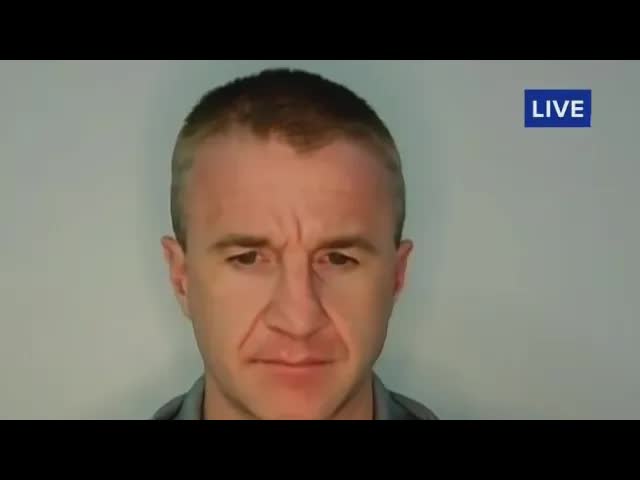In a courtroom drama that is expected to stretch over the next six weeks, prosecutors summoned three witnesses today to testify in a high-profile case.
The spotlight is on Karen Reid, a woman embroiled in a tragic incident involving her deceased boyfriend, John O’Keefe.
Among those closely following the proceedings is local blogger Aiden Kearney, who goes by the moniker Turtle Boy.
His advocacy for Reid has sparked both support and controversy, particularly as he faces charges of witness intimidation himself.
Kearney, who has pleaded not guilty, joined me for an exclusive interview.
Given the courtroom’s restricted access, many are left to catch the proceedings through a live feed.
I asked Kearney whether he believed the prosecution made any significant progress today.
He responded with conviction, asserting that the developments actually favored the defense rather than the prosecution.
“Let me clarify,” Kearney emphasized.
“We didn’t show up at the homes of witnesses.
We peacefully protested outside the residences of those involved in the case.” He went on to argue that the evidence presented today, including video footage from the O’Keefe residence, could potentially bolster Reid’s defense.
For instance, he pointed out that her car was parked nearby, yet no one seemed to notice the allegedly damaged taillight.
Kearney described a dash cam video played in court, recorded by Canton police officer Stephen Seraf.
This footage captures the chaotic moments after O’Keefe’s body was discovered.
According to Kearney, Reid displayed genuine shock and distress upon encountering the scene, while Jennifer McCabe, another key figure, appeared more focused on engaging with law enforcement.
“What we see is a woman in panic, running around after witnessing something unimaginable,” Kearney noted.
In stark contrast, he claimed that McCabe was already attempting to manipulate the narrative, suggesting that Reid may have been involved in O’Keefe’s death.
The courtroom buzzed with revelations, particularly surrounding text messages from investigator Michael Proctor.
These messages, which surfaced during the trial, suggest that Proctor had been improperly searching Reid’s phone for explicit content and expressed a disturbing hope that she would take her own life.
Kearney condemned this behavior, arguing it reflects a deeper corruption within the investigation.
He elaborated on Proctor’s connections to the homeowners involved, stating, “This cop would benefit immensely if Reid were to kill herself.
It would absolve him of any wrongdoing and allow him to cover up the truth.” The implications of such relationships raise serious questions about the integrity of the investigation.
Kearney also highlighted the absence of thorough investigative procedures following O’Keefe’s death.
Despite being a Boston police officer, Proctor allegedly failed to disclose crucial information and did not investigate his acquaintances when a dead officer was found on their property.
“If this were you or me, they’d be all over our homes,” Kearney remarked, emphasizing the apparent double standard.
The trial has revealed a tangled web of potential misconduct, with Kearney suggesting that Proctor’s actions may have been aimed at framing Reid.
“These are the same officers who arrested me for exposing these facts,” he stated, underscoring the tension between his journalistic pursuits and the legal ramifications he faces.
As the trial progresses, Kearney anticipates further explosive revelations that could shift the case’s trajectory.
“What we’re witnessing is just the tip of the iceberg,” he warned, hinting at more evidence that could emerge to challenge the prosecution’s narrative.
With Proctor under investigation by the FBI and facing scrutiny from internal affairs, it remains to be seen how these developments will impact the trial.
Kearney’s insights offer a glimpse into the complexities of the case, where the lines between justice and corruption appear increasingly blurred.
As the courtroom saga unfolds, many eyes will be watching closely, eager to see how the evidence will shape the fate of Karen Reid and the broader implications for those involved in the investigation.































